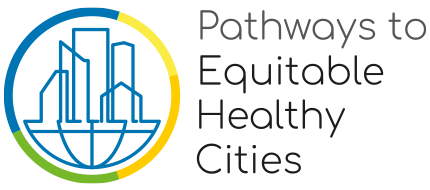Tamale
Tamale is the capital of the Northern region and one of the fastest growing cities in West Africa. Its population faces multiple challenges caused by unplanned urbanisation, climate change and inequality.
The Pathways team conducted background work in 2021, and launched the efforts in Tamale in November 2022 with a workshop that engaged many local stakeholders including government agencies, NGOs, civil society representatives, and universities. These groups continue to be close research partners. The engagement workshop report can be accessed here.
Tamale is already experiencing the effects of climate change, which are projected to intensify. The intersection of climate change with rapid infrastructure construction, unplanned and illegal developments and social and economic inequalities are creating complex and unequal patterns of risks to health.
The Pathways team, led by consortium members from the University of Ghana and in close collaboration with other partner institutions has been working to identify challenges associated with climate change and their links with health in Tamale. With a focus on solutions, the team is working with local partners to identify climate change adaptation strategies for Tamale, urging for careful and holistic approaches for city planning. One of the research goals is to establish frameworks that can synchronize the complex governance systems and catalyse equitable adaptation at the city and community level.
Perennial pluvial flooding in Tamale is a major concern in Tamale. Urbanisation, poorly planned drainage infrastructure, indiscriminate waste disposal, poor waste management systems and climate change contribute to its increasing frequency, severity, and impacts. We are working closely with communities to understand how flood exposure and impacts are distributed within the city. Furthermore, we are working with government agencies, NGOs and civil society groups to understand how current climate adaptation strategies work to reduce or exacerbate inequities in flood impacts and how to reduce the identified inequalities. The goal is to recommend transformational flood adaptation strategies that target the fundamental causes of flooding and that primarily benefit the most vulnerable.
Related publications
Modeling the impacts of urban flood risk management on social inequality
Water Resources Research, vol. 57, iss. 6, pp. e2020WR029024, 2021.
BMJ, vol. 363, iss. 1, pp. k3794, 2018.
